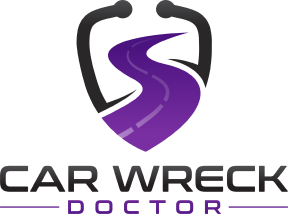Car accidents in Roseville, Michigan frequently result in a range of common neurological injuries, including traumatic brain injuries, concussions, and neuropathy. These conditions, sometimes lingering beyond the physical trauma of the accident, emphasize the need for specialized medical attention that can adequately address these complexities. Neurological evaluations help identify problems that might not surface until days or weeks after the initial impact.
Neurological Expertise for Car Accident Victims in Geo Cities
A neurologist plays a critical role in the recovery process following a car accident. Specializing in diagnosing neurological injuries, they focus on potential damage to the head, neck, and nerves, which often go undetected by general medical professionals.
Early consultation with a neurologist in Roseville, Michigan is important to ensure you don’t have longer term damage. It helps in timely pain management and treatment, which can significantly enhance recovery outcomes. This reduces the risk of chronic pain developing beyond the typical recovery period.
In addition to treatment, neurologists provide essential medical documentation. This documentation is crucial for insurance claims, ensuring victims secure appropriate compensation for medical needs related to the accident. Their expertise supports clear and comprehensive claims, safeguarding victims' rights and access to necessary care.
Common Brain Injuries: Roseville Car Accidents
Car accidents in Roseville can cause a wide range of neurological injuries due to the complexity and delicacy of the nervous system. Common issues include numbness and tingling, loss of bladder or bowel control, vision problems, seizures, and chronic headaches. These symptoms are indicative of potential damage to the brain or spinal cord, which are critical components of the body's functioning. The intricacies of these injuries mean they can affect overall well-being significantly, sometimes with far-reaching implications for daily living.
Detecting neurological issues after an accident can be challenging, as symptoms may not manifest immediately. This delay necessitates close monitoring and further evaluation to ensure comprehensive care. Immediate medical attention and ongoing assessment are crucial for identifying injuries that might otherwise go unnoticed in the initial aftermath of a collision. This vigilance helps prevent long-term complications by addressing issues early.
Traumatic Brain Injury (TBI):
- TBIs are the result of the brain rapidly moving within the skull during car accidents.
- TBIs can damage nerve fibers, leading to symptoms like dizziness, chronic headaches, memory problems, and decreased concentration (post-concussion syndrome).
- Long-term effects may include chronic pain due to central nervous system disruptions.
- Immediate and ongoing medical care is critical for managing symptoms and recovery.
Concussions:
- Concussions are a mild form of TBI caused by the brain making contact with the skull from whiplash or impact.
- This may result in bleeding or swelling in the brain, with symptoms like headaches, dizziness, confusion, and memory lapses.
- Symptoms can take time to appear, so early monitoring and intervention are essential because you may not even realize you are injured.
Neuropathy:
- Neuropathy arises when nerve fibers in the peripheral nervous system are compressed, severed, or crushed, often due to accident-related trauma.
- Symptoms may include pain, tingling, numbness, weakness, and motor skill difficulties.
Need Neurological Assessment? Symptoms in Roseville, Michigan
After a car accident, understanding the possible neurological complications is crucial. These can manifest in various ways, from pain symptoms to sensory issues, requiring prompt medical attention. Neurological evaluations from Roseville neurologists are essential when symptoms such as throbbing or stabbing pain, tingling, numbness, and stiffness emerge. These signs often indicate underlying nerve injuries or complications that need careful diagnosis and treatment.
Sensitivity to light, blurred vision, tinnitus, and changes in smell and taste are sensory issues that may suggest neurological injuries. Such symptoms often indicate that there may be damage to the brain or specific nerves. It's important to seek medical evaluation immediately to prevent further complications and to facilitate appropriate recovery and treatment plans.
Chronic Headaches
- Persistent headaches after a car accident may indicate a traumatic brain injury (TBI).
- Chronic headaches can develop over time due to blunt force trauma from collisions.
- Symptoms like confusion and balance issues may accompany headaches, requiring immediate neurological evaluation.
- Documenting headache frequency and severity helps in creating effective treatment plans.
Neck and Back Pain
- Neck pain often radiates to the shoulders and skull, with possible numbness and tingling in extremities, which would indicate nerve injuries.
- Upper Spine Injuries May cause secondary complications impacting daily functionality.
- Lower Back Pain can be common after accidents, often linked to traumatic spinal impact and nerve impingements.
- Prompt Treatment is critical to prevent injuries from worsening and encourage recovery through medical care and physical therapy.
Nerve Damage
- Signs of nerve damage may include radiating pain, soreness, and stiffness.
- Additional symptoms like headaches could indicate an underlying injury impacting the brain or spine.
- Early recognition allows for timely treatment, including medication, therapy, or surgery, to prevent long-term complications.
- Neurologists can create comprehensive treatment plans that may include medication, physical therapy, and in some cases, surgical intervention.
Roseville Neurological Evaluation: Identifying Symptoms
Timely evaluation by a neurologist after a car accident is crucial for identifying potential neurological issues. A comprehensive examination will assess key functions such as speech, vision, strength, coordination, reflexes, and sensation. These assessments help pinpoint any neurological injuries that might have occurred.
Seeking prompt neurological care can effectively reduce pain by addressing conditions and symptoms arising from the car crash. Neurologists can develop personalized treatment plans to tackle issues like chronic pain, balance problems, and nerve damage. Early intervention also significantly reduces the risk of long-term complications by treating underlying neurological causes before they worsen.

Diagnostic Procedures Used by Neurologists
In the aftermath of a car accident, timely diagnostic procedures are crucial for accurate identification and treatment of neurological injuries. Neurologists in Roseville employ a range of diagnostic methods to evaluate the condition of the brain and nervous system. Each diagnostic procedure plays a specific role in understanding the extent of an injury, facilitating the creation of an effective treatment plan. From physical examinations to sophisticated imaging and electrical tests, these procedures are integral in assessing potential damage and formulating strategies for recovery.
Physical Examinations
A neurologist begins with a thorough physical examination to assess the patient's mental alertness, speech, vision, reflexes, balance, and coordination. This evaluation helps detect any head trauma or nerve damage that may have occurred due to the accident. Symptoms such as muscle weakness, chronic pain, and cognitive difficulties are critical indicators that prompt further physical examination. By identifying these issues early, a neurologist can develop an appropriate treatment plan aimed at addressing any neurological damage.
Imaging Tests
Neurologists utilize a variety of imaging tests to gain a detailed understanding of brain and nerve function after injury. Magnetic resonance imaging (MRI), computed tomography (CT), computer-assisted tomography (CAT) scans, and electroencephalography (EEG) are frequently used. MRI scans provide dynamic images that allow neurologists to locate abnormalities and determine the extent of damage in cases of head trauma. CT scans offer visualization of internal structures, aiding in the diagnosis of traumatic brain injuries and nervous system conditions. Collectively, these imaging technologies are indispensable tools in diagnosing and managing neurological injuries.
Electromyography (EMG) and Nerve Conduction Studies
Electromyography (EMG) is a diagnostic test that evaluates the health of muscles and the nerves controlling them. It identifies abnormalities and diagnoses muscle and nerve diseases. During an EMG, a thin needle electrode is inserted into the muscle being tested, recording electrical signals on a graph. This data is crucial for identifying conditions like carpal tunnel syndrome, amyotrophic lateral sclerosis (ALS), and muscular dystrophy. Nerve Conduction Studies (NCS), often performed alongside EMG, assess the function of electrical impulses in the nerves to diagnose nerve damage. The results from EMG and NCS assist in monitoring the effectiveness of treatments for identified muscle and nerve disorders, ensuring a comprehensive approach to neurological care.
Treatment Options for Neurological Injuries
Car accidents can result in a broad spectrum of neurological injuries that require immediate and ongoing medical intervention. In Roseville, Michigan, neurologists are equipped to diagnose and manage a range of conditions resulting from such accidents. Common symptoms include numbness, loss of bladder control, vision issues, seizures, and chronic headaches. These conditions may stem from injuries such as traumatic brain injuries (TBIs), spinal cord injuries, and nerve damage. The treatment typically starts with emergency medical care to stabilize the patient and prevent further injury.
Once stabilized, neurologists conduct thorough evaluations, often using advanced imaging and neurological testing to assess the extent of brain activity disturbances, mental processing challenges, and reaction time impairments. These assessments are critical in shaping the treatment plan, tailored to address specific symptoms and injury types. For TBIs, ongoing monitoring and medical management are vital to mitigate symptoms and foster recovery.

Pain Management Strategies
Pain management is a crucial aspect of treatment for neurological injuries, especially following a car accident. Neurologists employ several methods to alleviate pain, ranging from pharmaceutical interventions to holistic therapies. Medications may include anti-inflammatories and agents that block pain signals to tackle both acute and chronic pain.
Holistic approaches like chiropractic care and acupuncture are often included in a neurologist's pain management strategy to complement medical treatments. These alternative therapies can address musculoskeletal pain associated with soft tissue injuries and spinal injuries. Furthermore, neurologists often collaborate with physical therapists to enhance recovery through structured physical rehabilitation.
Additionally, self-care practices and relaxation techniques, such as deep breathing exercises and mindfulness, are recommended to help manage pain and stress. These practices can significantly improve a patient's overall well-being when integrated into a comprehensive treatment plan.
Rehabilitation Services
Rehabilitation services are a cornerstone of recovery for patients with neurological injuries. In Roseville, Michigan, specialized care focuses on the diagnosis, management, and rehabilitation of conditions like TBIs and spinal cord injuries. The goal is to aid recovery and improve quality of life through a combination of medical management, physical therapy, and other rehabilitative therapies.
Physical therapy plays a pivotal role in restoring mobility and function, while medical management ensures that pain and other symptoms are controlled. Neurologists work closely with patients, providing counseling to help them adjust to life changes post-injury. Counseling is an essential component of the rehabilitation process, offering emotional support and guidance as patients adapt to new realities.
Rehabilitative therapies may also include occupational therapy and speech therapy, depending on the nature of the injury. These therapies work together to empower patients, promoting independence and enhancing the quality of life.
Car Wreck Doctor Can Help
Finding a neurologist who is a perfect fit for your situation can be complex. Between finding someone who specializes in the types of injuries you have, someone who accepts your insurance, and someone who will help gather all of the documentation for your personal injury case, the perfect fit can feel like a diamond in the rough. That’s where we come in. At Car Wreck Doctor, we will help you find the perfect neurologist in Roseville, Michigan for your situation. Click the button below to get care you need.
News in Roseville:
Click The Button Below For More Information:



